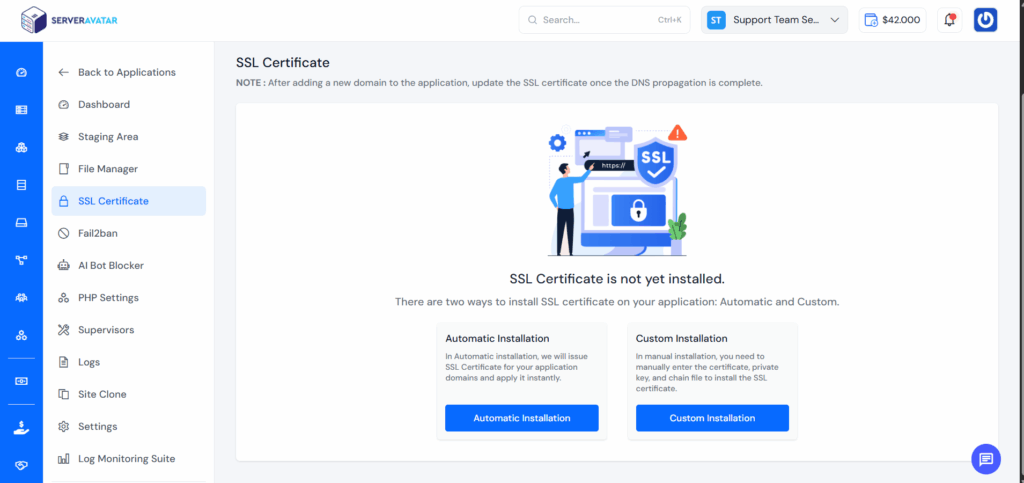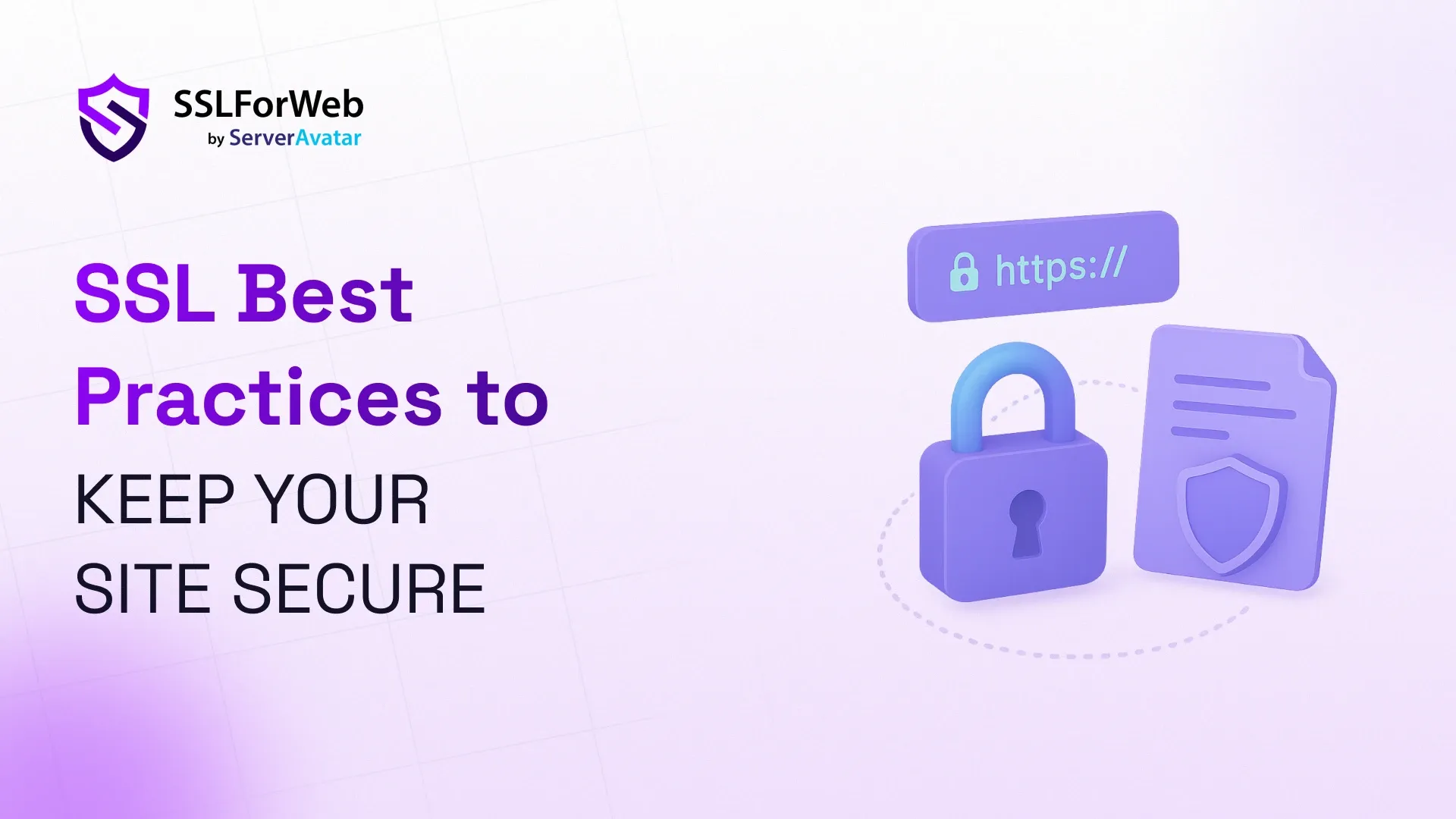SSL best practices ensure your information stays secure when you visit a website. That’s precisely when SSL (Secure Sockets Layer) comes into action. SSL is an encryption technology that secures sensitive data, such as passwords, payment information, and personal info, so it can’t be accessed by hackers.
These days, SSL is no longer an option but a must-have for every website owner concerned with security and user trust.
How SSL Works
At its core, SSL works like a digital lock and key. When you connect to a website with HTTPS, the browser and the server perform a secure handshake. During this process:
- Data is encrypted before it leaves your device.
- The server decrypts it only after verifying the SSL certificate.
- Hackers trying to intercept will only see scrambled information.
This is the difference between HTTP (insecure) and HTTPS (secure). Simply put, HTTPS is the safe version of the internet highway.
Types of SSL Certificates
Not all SSLs are created equal. Here are the main types:
- Domain Validation (DV): Quick and easy, verifies domain ownership.
- Organization Validation (OV): Adds company details, improving trust.
- Extended Validation (EV): The highest level of validation, shows company name in the browser bar.
- Wildcard SSL: Protects your main domain and unlimited subdomains.
- Multi-Domain SSL (SAN): Covers multiple domain names under one certificate.

Why SSL is Essential for Your Website
- Data Protection: Prevents sensitive information from being stolen.
- Trust Building: Visitors feel safe when they see the padlock icon.
- SEO Benefits: Google boosts HTTPS websites in rankings.
Without SSL, your site risks losing both customers and search visibility.
SSL and Website Performance
Some worry SSL slows websites down. The truth? Modern SSL protocols are optimized for speed. In fact, using HTTP/2 with SSL can make your website faster.
To keep performance high:
- Use a reputable SSL provider.
- Enable OCSP stapling.
- Regularly test your site speed.
Best Practices for SSL Security
- Always use HTTPS: Force all traffic through HTTPS.
- Enable auto-renewal: Never let your SSL expire.
- Redirect HTTP to HTTPS: Prevent duplicate content issues.
- Fix mixed content: Ensure all images, scripts, and links load via HTTPS.
Choosing the Right SSL Certificate
If you’re just running a blog, a free SSL like Let’s Encrypt works fine.
For businesses or e-commerce sites, invest in OV or EV certificates for higher trust.
Keeping Your SSL Updated
SSL certificates expire, usually every 90 days to 2 years. Forgetting renewal can cause your site to show scary browser warnings. Use automation tools or your hosting panel’s auto-renew option.
Testing Your SSL Setup
You can test your SSL setup using:
- Qualys SSL Labs
- Why No Padlock
- SSL Checker
These tools help identify weak ciphers, expired certs, and misconfigurations.
Advanced SSL Configurations
If you want extra protection, enable:
- TLS 1.2 and TLS 1.3 (disable old versions like SSLv3).
- Perfect Forward Secrecy (PFS) for unique encryption keys.
- Strong cipher suites to prevent downgrade attacks.
Securing Subdomains with SSL
Running multiple subdomains? Use:
- Wildcard SSL: Covers *.yourdomain.com.
- SAN Certificates: Cover multiple domains and subdomains.
SSL for E-commerce and Payment Security
If you accept payments, SSL is mandatory.
- It helps you comply with PCI DSS requirements.
- It protects credit card and payment information.
- It reassures customers during checkout.
ServerAvatar SSL Feature
Easily secure your websites with free and automated SSL certificates using ServerAvatar. Ensure HTTPS encryption, improve trust, and boost your SEO with effortless SSL management.

Key SSL Features of ServerAvatar:
- Free SSL Certificates
- Auto SSL Installation
- One-Click HTTPS Enablement
- Force HTTPS Redirects Automatically
- Custom SSL Certificate Support (for paid certificates)
- Multi-domain SSL Support
- Detailed SSL Status Monitoring
- Improved Site Security & SEO Boost
Common SSL Mistakes to Avoid
- Using self-signed certificates (browsers won’t trust them).
- Letting SSL expire without renewal.
- Ignoring browser warnings.
- Failing to redirect HTTP to HTTPS.
The Future of SSL and Website Security
Encryption standards keep evolving. TLS 1.3 is now the industry standard, providing lightning-fast security. With the rise of cyber threats, SSL will remain the foundation of web security for years to come.
1. What happens if I don’t use SSL?
Your site may show “Not Secure” warnings, lose customer trust, and rank lower in search engines.
2. Is free SSL from Let’s Encrypt safe?
Yes! It provides the same level of encryption as paid SSLs, but lacks advanced validation.
3. How often should I renew SSL?
Depends on the provider—free SSLs every 90 days, paid SSLs up to 2 years.
4. Can SSL protect from hackers?
SSL encrypts data but doesn’t stop all attacks. You still need firewalls, malware protection, and secure coding.
5. Do SSL certificates improve SEO ranking?
Yes. Google gives preference to HTTPS sites, so SSL indirectly boosts rankings.
Conclusion
SSL is no longer just a nice-to-have feature, it’s the backbone of online security. From encrypting sensitive data to improving SEO rankings, SSL protects both your website and your visitors. By following the best practices outlined above, you’ll not only build trust but also safeguard your digital presence against modern cyber threats.



